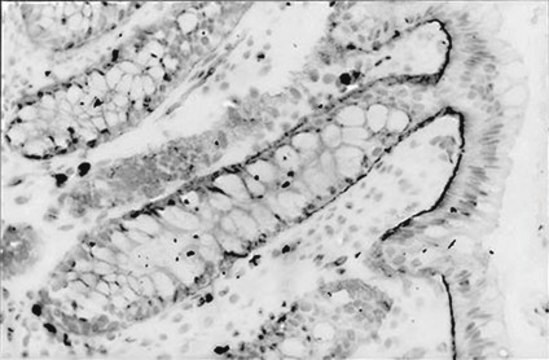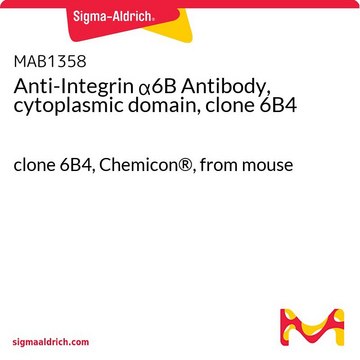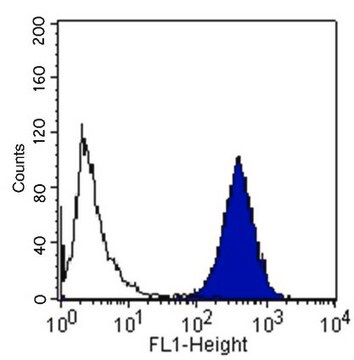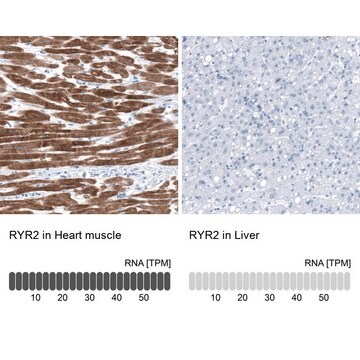MAB1964
Anti-Integrin β4 Antibody, clone 3E1
ascites fluid, clone 3E1, Chemicon®
Synonym(s):
CD104
About This Item
ICC
IHC
IP
immunocytochemistry: suitable
immunohistochemistry: suitable
immunoprecipitation (IP): suitable
Recommended Products
biological source
mouse
antibody form
ascites fluid
antibody product type
primary antibodies
clone
3E1, monoclonal
species reactivity
human
manufacturer/tradename
Chemicon®
technique(s)
flow cytometry: suitable
immunocytochemistry: suitable
immunohistochemistry: suitable
immunoprecipitation (IP): suitable
isotype
IgG1
NCBI accession no.
UniProt accession no.
shipped in
dry ice
target post-translational modification
unmodified
Gene Information
human ... ITGB4(3691)
General description
Specificity
Application
Also suitable for use in immunoprecipitation and flow cytometric assays.
Optimal working dilutions must be determined by the end user.
Physical form
Other Notes
Legal Information
Not finding the right product?
Try our Product Selector Tool.
Storage Class Code
10 - Combustible liquids
WGK
WGK 1
Flash Point(F)
Not applicable
Flash Point(C)
Not applicable
Certificates of Analysis (COA)
Search for Certificates of Analysis (COA) by entering the products Lot/Batch Number. Lot and Batch Numbers can be found on a product’s label following the words ‘Lot’ or ‘Batch’.
Already Own This Product?
Find documentation for the products that you have recently purchased in the Document Library.
Our team of scientists has experience in all areas of research including Life Science, Material Science, Chemical Synthesis, Chromatography, Analytical and many others.
Contact Technical Service








